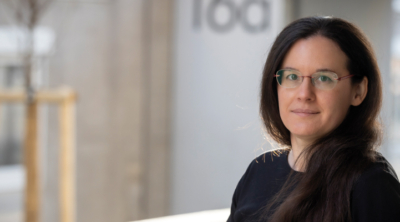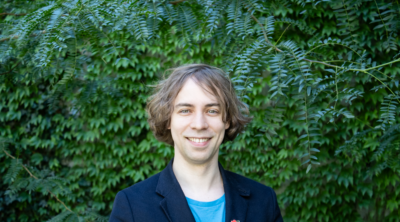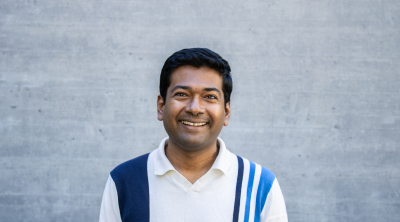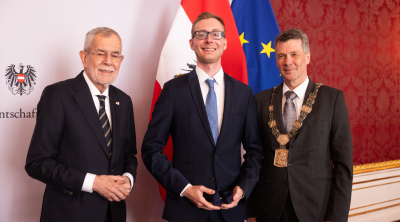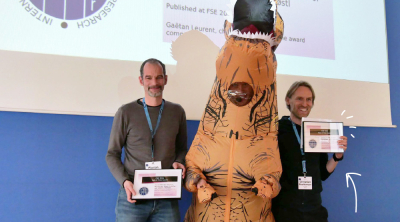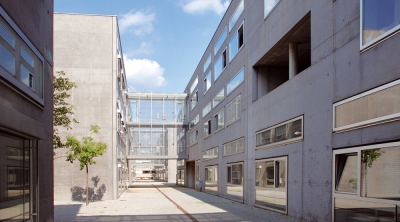We love information security
ISEC in a nutshell
ISEC, the Institute of Information Security, is the largest university institute in Austria for research and education in security and privacy. It has been active in this field for more than 30 years and currently employs more than 60 researchers. The institute is part of the Faculty of Computer Science and Biomedical Engineering (CS&BME) at Graz University of Technology. The head of the institute is Stefan Mangard.
Research
ISEC is one of the leading research institutions in cybersecurity and active in the following four areas: Cryptology & Privacy, Formal Methods, System Security, and Secure Applications. Overall, the researchers of the institute have published more than 1000 scientific publications.
Among the sparkling highlights of ISEC’s research are the processor vulnerabilities known as “Meltdown” and “Spectre”. Cryptographers of the institute have contributed to major worldwide competitions in cryptography, like AES, SHA-3, and CAESAR; these contributions were always shortlisted or even won the competition.
Teaching
ISEC offers about 20 courses at the Bachelor and the Master level. In all courses, it is our goal to get students involved with the foundations as well as the latest technologies and research challenges. This also holds for the Bachelor’s and Master’s thesis. As a consequence, several Bachelor and Master students are co-authors of publications at international top conferences each year.
Projects and Partners
The institute collaborates closely with research groups and industry partners around the globe. It is also very active in European and national research projects. There are also many local collaborations in and around Graz, where many companies work in the domain of information security.
ISEC
Awards & Highlights
In 1986, ISEC was founded under the name of IAIK: Institute of Applied Information Processing and Communications and been home to numerous outstanding personalities and impactful insights.
In the following, we list a selection of highlights in research and education at ISEC. These successes include scientific breakthroughs, inspiring collaborations, high-impact research contributions, personal accolades, and other moments that have shaped ISEC and that we like to remember.
All highlights are evidence of the excellent work contributed by ISEC’s researchers to address the challenges of secure computing. We’re proud of each and every one of our past and present colleagues. Thanks to all who have contributed and made these things possible!
2025
2024
2023
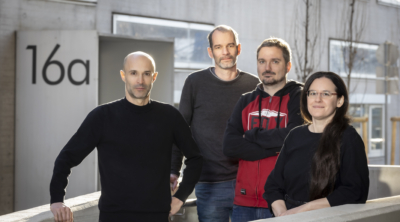
Ascon is New NIST Standard for Lightweight Crypto
The US National Institute of Science and Technology (NIST) has selected Ascon as new standard for lightweight cryptography. This concludes the NIST Lightweight Crypto (LWC) project, a 4-year competition with the goal of standardizing a lightweight authenticated encryption algorithm suitable for constrained environments. Ascon was developed in 2014 at IAIK, TU Graz by Christoph Dobraunig (now at Intel), Maria Eichlseder, Florian Mendel, and Martin Schläffer (both now at Infineon). The [...]
2022

New Assistant Professor: Bettina Könighofer
We are pleased to announce that Bettina Könighofer joins as an assistant professor for Trustworthy Artificial Intelligence at IAIK. Bettina founded the group Trusted AI. In her research, she and her group is using state-of-the-art formal methods to test, to verify, and to monitor AI systems with the goal to make sure that AI systems are safe, secure, transparent, accountable, robust, and unbiased. Bettina’s research was the first that provided provable correctness guarantees for deep learning systems.
Bettina is lecturing the bachelor course Logic and Computability and partially teaches the graduate course Model Checking.
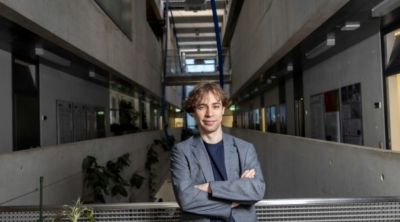
Daniel Gruss receives Highly Endowed ERC Starting Grant
Daniel Gruss receives the prestigious EU funding award for research into energy-efficient IT security from the European Research Council in 2022. The research of computer scientist and cybersecurity expert Daniel Gruss and also of experimental physicist and START Prize winner Marcus Ossiander will receive funding totalling 3.3 million euros over the next five years, the European Research Council announced today.
Read more about their remarkable achievement by clicking on the link on the right.

Daniel Gruß promoted to Associate Professor
We are delighted to announce that Daniel Gruß has successfully completed his tenure track and has now been promoted to be an associate professor as of 1st of June 2022. Daniel has been part of our institute since 2010 and become a popular lecturer and also a reknown researcher within his field. Along with his own and other research teams, he is responsible for the discoveries and defences against serious security bugs such as Meltdown and Spectre, ZombieLoad, or Load Value Injection.
Thank you for your committment, and most of all: Congratulations!
2021
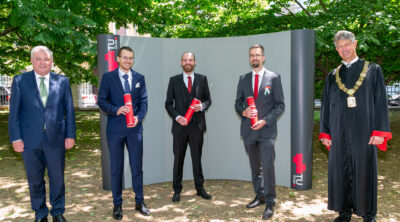
Samuel Weiser graduates sub auspiciis praesidentis
On 23 June, IAIK graduate Samuel Weiser has received his doctorate "sub auspiciis" at TU Graz. Along with two other TU graduates, Michael Kalcher and Thomas Ulz, he was awarded this highest honor in Austrian education, bestowed for exclusively top performances up to the doctorate.
The three graduates received honorary rings from govenor Hermann Schützenhöfer.
In his dissertation, Samuel Weiser analysed so-called enclaves, special security technologies for computer processors that are able to protect sensitive programmes from malware and untrustworthy system operators.
Read the full article here (in German)
2020
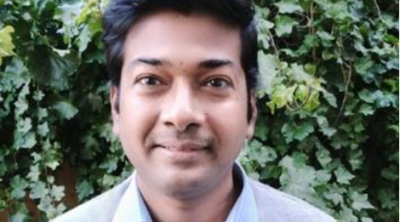
Sujoy Sinha Roy joins IAIK as Assistant Professor
We welcome Sujoy Sinha Roy as assistant professor in cryptographic engineering at IAIK. Sujoy is interested in the implementation aspects of cryptography. He is a co-designer of ‘Saber’ which is a finalist in NIST’s Post-Quantum Cryptography Standardization Project. He received the PhD degree in 2017 with 'Summa cum laude with congratulations from the examination committee' from COSIC, KU Leuven, Belgium. His doctoral thesis was awarded the 'IBM Innovation Award 2018' that recognizes an outstanding doctoral thesis in informatics. Before joining TU Graz, he worked as an assistant professor at the University of Birmingham's Security and Privacy group.
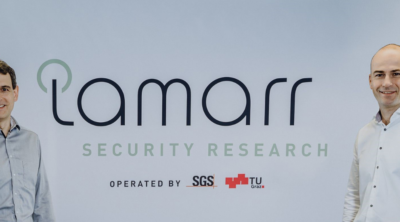
SGS and TU Graz open Lamarr Security Research
SGS and TU Graz announce the opening of Lamarr Security Research, a non-profit research center focusing on information security and establishing trust in digital systems and products. This new research environment is open for partner sponsors to work together, and to make the world a safer place.
Stefan Mangard from Graz University of Technology (left) and Martin Schaffer from the SGS Group (right) are the leading heads of Lamarr Security Research.
Find out more about Lamarr Security Research HERE!
2019
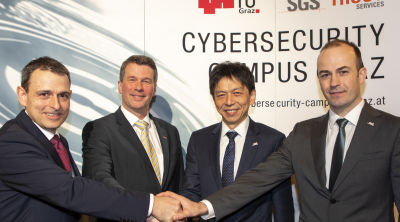
SGS and Graz University of Technology set up Cybersecurity Campus Graz
SGS and Graz University of Technology have joined forces to set up Cybersecurity Campus Graz. They address the current challenges in cybersecurity by means of working together in three areas: Research on analyzing system security and on fundamental new security concepts.Education for cybersecurity experts and researchers who are in such strong demand.Testing and certification of product and system security. All of these activities – from basic research and higher education [...]
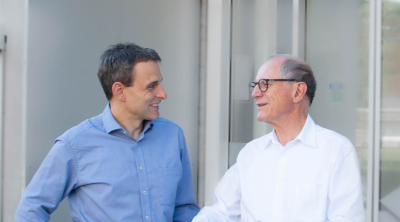
New head of IAIK
Starting with October 1st, Stefan Mangard is the new head of IAIK.
He follows Reinhard Posch who has founded the institute in 1986 and is now becoming professor emeritus. Stefan Mangard is professor at IAIK
since 2013 and performing research on information security since 20 years.
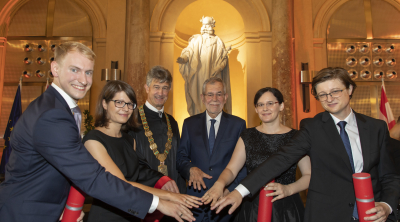
Graduation "sub auspiciis" for Maria Eichlseder and Peter Pessl
Four outstanding graduates from TU Graz received their doctorate under the auspices of the Austrian President – the highest honor in Austrian education. Among the four graduates receiving honorary rings from President Alexander Van der Bellen were two IAIK graduates. Maria Eichlseder defended her thesis “Differential Cryptanalysis of Symmetric Primitives” in 2018 and is one of the first two women to ever receive this honor at TU Graz. Peter Pessl’s [...]
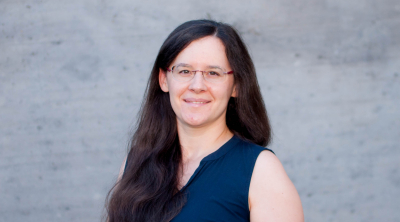
New Professor: Maria Eichlseder
We are excited that Maria Eichlseder will join IAIK as an assistant professor for Cryptography. Maria's research interests include the design and cryptanalysis of symmetric cryptographic algorithms, such as hash functions and authenticated encryption algorithms and their underlying primitives. She co-designed Ascon, a lightweight authenticated cipher that is among the winners of the CAESAR competition. She defended her Ph.D. sub auspiciis praesidentis in 2018, for which she received an award of excellence from the Austrian Federal Ministry of Education, Science and Research and a sponsorship prize of the Technology and Society Forum. Before that, she studied Computer Science and Technical Mathematics at Graz University of Technology.
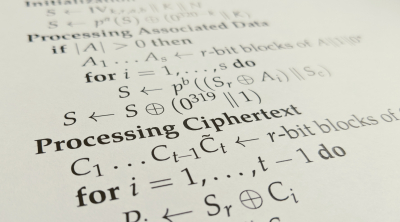
Ascon - the primary choice for lightweight crypto
Ascon has been selected as the primary recommendation for lightweight authenticated encryption in the final portfolio of the CAESAR competition! The CAESAR competition started in 2014 with the goal of identifying excellent authenticated encryption schemes for three use-cases: lightweight applications, high-performance software applications, and defense-in-depth. The competition received 57 first-round candidate submissions, which were narrowed down to 6 final portfolio ciphers after 5 years of analysis and benchmarks by the [...]

Picnic and SPHINCS+ selected for round 2 of NIST PQC project
Picnic and SPHINCS+, two post-quantum secure digital signature schemes designed by teams involving cryptographers from IAIK, have been selected as round 2 candidates of the NIST PQC project. More information on the two submissions can be found on the Picnic and SPHINCS+ websites.
2018
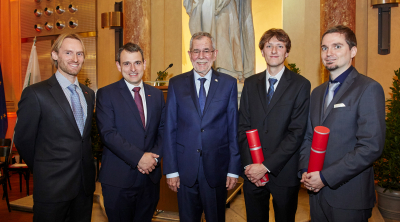
Christoph Dobraunig and Thomas Unterluggauer graduate sub auspiciis praesidentis
For their remarkable performance during their academic career as students, Christoph Dobraunig and Thomas Unterluggauer receive their PhD on 23 November 2018 from the Federal President of Austria, Prof. Alexander Van der Bellen. More information (in German)…

New Professor: Daniel Gruss
We are delighted that Daniel Gruss will join us as an assistant professor. Daniel finished his PhD with distinction in less than 3 years. He has been involved in teaching operating system undergraduate courses since 2010. Daniel's research focuses on software-based attacks and defenses on microarchitectural layers in hardware and software. He implemented the first remote fault attack running in a website, known as Rowhammer.js. He frequently speaks at top international venues, such as Black Hat, Usenix Security, IEEE S&P, ACM CCS, Chaos Communication Congress, and others. His research team was one of the teams that found the Meltdown and Spectre bugs published in early 2018 and designed the software patch (KAISER) against Meltdown which is now integrated in every operating system.
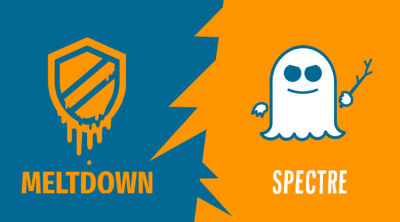
Publication of Meltdown and Spectre
IAIK researchers are part of the international research team that publish critcial vulnerabilities in modern processors: https://meltdownattack.com/
2015

Stefan Mangard receives ERC consolidator Grant
The project “SOPHIA – Securing Software against Physical Attacks” focuses on securing processors against all kinds of side channel attacks.

Christian Rechberger Joins IAIK
We are delighted to welcome Christian Rechberger to our team ass a full professor for Cryptography. After completing a PhD in Graz, Christian became a postdoc at KU Leuven and then ENS in Ulm. In 2011, Christian accepted a position as an associate professor at DTU in Denmark. From 2008-2013 Christian coordinatied the hash function working group within the ECRYPT II Network of Excellence. Christian's research interests are in symmetric cryptography.
2013

Stefan Mangard Joins IAIK
We are very happy to announce that Stefan Mangard will join our institute as a full professor for Information Security. Stefan is author of a textbook on power analysis attacks. Before joining us, Stefan worked as lead security architect at the Chip Card and Security division of Infineon in Munich.
2011

Rigorous Systems Engineering
We are proud to announce that we have been awarded a National Research Network grant from FWF. RiSE is the only network grant in Computer Science in Austria. It's goal is to bring the state of the art in formal methods from after-the-fatct verification to formal methods to help designers write correct code from the get-go. The grant is coordinated by IAIK's Roderick Bloem and is a collaboration of Armin Biere (Linz), Krishnendu Chatterjee (IST Austria), Uwe Egly (TU Wien), Thomas A. Henzinger (IST Austria), Christoph Kirsch (Salzburg), Helmut Veith (TU Wien), and Ulrich Schmid (TU Wien).

Reinhard Posch awarded with the Grand Decoration of Honour in Silver for Services to the Republic of Austria
Reinhard Posch is awarded with the Grand Decoration of Honour in Silver for Services to the Republic of Austria by the Federal President of Austria, Dr. Heinz Fischer.
2010

Groestl becomes SHA-3 finalist
A new hash function designed by a team of cryptographers from IAIK and DTU (Denmark) in 2008 is selected among 50+ proposals by academic and industrial research groups worldwide by NIST (www.nist.gov) to be a finalist in a competition for a future standard. See www.groestl.info.
2009
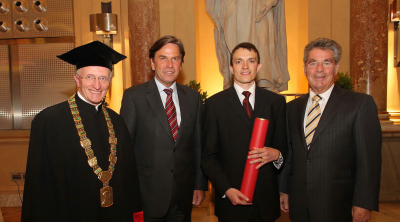
Martin Feldhofer receives his PhD sub auspiciis praesidentis
For his remarkable performance during his academic career as a student, Martin Feldhofer receives his PhD on 23.6.2009 from the Federal President of Austria, Dr. Heinz Fischer.
2008
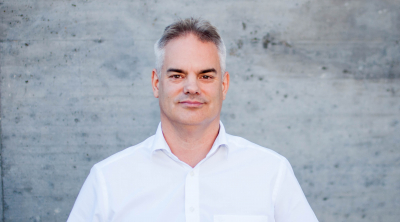
Roderick Bloem joins IAIK as Professor
We are very happy to announce that Roderick Bloem is joining IAIK as a professor. With Reinhard Posch and Vincent RIjmen, Roderick will be the third professor at IAIK. Roderick's research interests are in formal methods, particularly in reactive synthesis and fault repair. Roderick holds an MSc degree from Leiden University and a PhD from the University of Colorado at Boulder
2007

Reinhard Posch elected Chairman of the ENISA Management Board
Reinhard Posch got elected chairman of the ENISA Managememt Board. He served as chairman of the ENISA Management Board until 2011.

Researchers of IAIK Publish Textbook on Power Analysis Attacks
Stefan Mangard, Thomas Popp and Elisabeth Oswald publish the first textbook on power analysis attacks.
2005

Founding of the E-Government Innovationszentrum - EGIZ
The Federal Chancellery Austria and IAIK establish the E-Government Innovation Centre: http://www.egiz.gv.at/
2004

Vincent Rijmen joins IAIK
Vincent Rijmen, co-designer of Rijndael, the Advanced Encryption Standard, joins IAIK as professor. Vincent lead the IAIK crypto activities until 2012. The professorship was donated by Stiftung SIC.
2001

Reinhard Posch appointed Federal CIO
Reinhard Posch got appoined Chief Information Officer (CIO) of the Austrian Federal Government.
1999

A-SIT founded
The Secure Information Technology Center A-SIT has been established by its founding members Austrian Federal Ministry of Finance, Central Bank of Austria, and Graz University of Technology.






